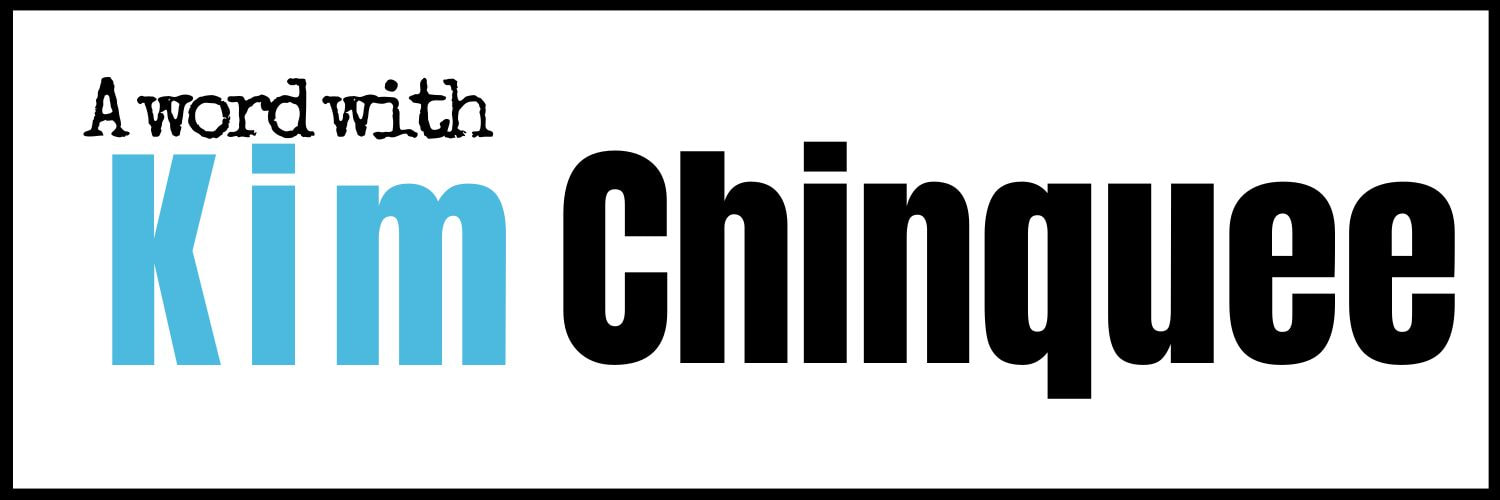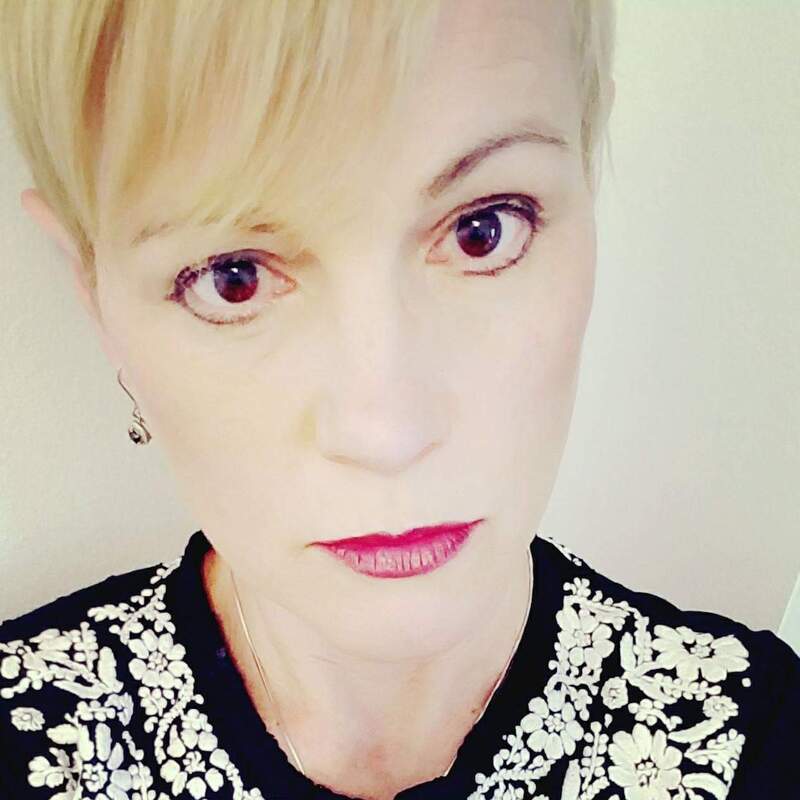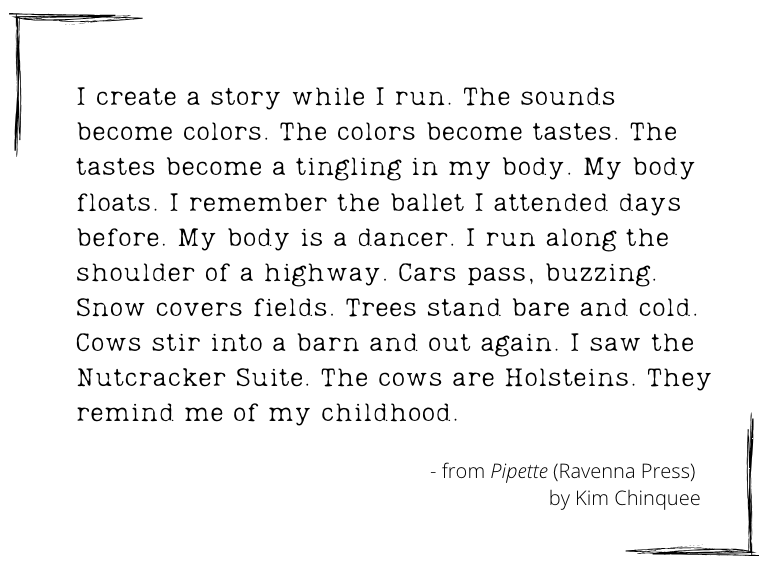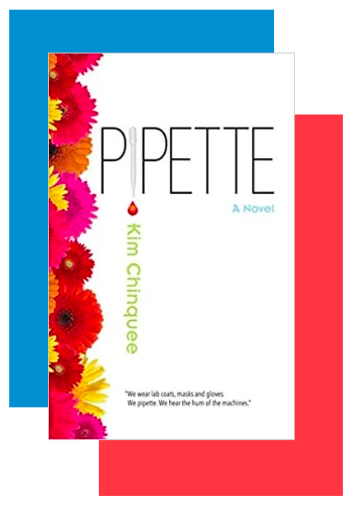By Laura Hawbaker & Chris Wiberg | Sept. 2023
|
Author Kim Chinquee grew up on a dairy farm in Wisconsin. After over eight years in the military—serving in the Air Force as a medical lab technician and a cop—she turned to writing when studying at the University of Wisconsin–Green Bay, the University of Southern Mississippi's Center for Writers, and the University of Illinois.
Chinquee has published fiction and nonfiction in The Nation, Ploughshares, NOON, StoryQuarterly, Denver Quarterly, Fiction, Story, Notre Dame Review, Conjunctions, and many others. She is also an accomplished literary editor, serving as senior editor of New World Writing, chief editor of Elm Leaves Journal, and associate editor of Midwest Review. Her most recent novel, Pipette, published by Ravenna Press, explores how novels can be told in flash fiction. Here she explains her thoughts on the art of fiction. |
What is the relationship between fiction and nonfiction—does real life inspire you?
The books I've published are fiction. Though some characteristics of my protagonists might also grow up on farms, are mothers, athletes, etc., they are not autobiographical. And I use fodder from my experiences to make art.
I studied primarily with fiction writers: Frederick Barthelme, Steve Barthelme, Mary Robison, Jean Thompson, Richard Powers. I do love writing prose poetry: [I] love language and like to play with words
I studied primarily with fiction writers: Frederick Barthelme, Steve Barthelme, Mary Robison, Jean Thompson, Richard Powers. I do love writing prose poetry: [I] love language and like to play with words
How is flash fiction different from longer stories? What skills are necessary for writing short-shorts?Longer pieces demand a bigger investment for the reader, obviously. The shorter forms also demand a lot from readers, as, in my opinion, it might take more work for the reader to fill in the gaps and spaces.
You’re also an editor. What's your advice for writers who are submitting their work to literary magazines?No need for long cover letters explaining your work. Polish your work. Let the work speak for itself.
|
You're also a runner and athlete. Does this inform your writing practice at all?Mostly [it's] just keeping up with the discipline. I love training—probably more than I love writing—every day. But it's good to be accountable to one's self and just keep up with the routine.
Do you have any additional advice for new writers who are beginning to embark on their writing journeys?If you're really serious about writing and want to keep up with it, find a good network of writing friends [and] a good workshop. Read as much as you can and support your fellow writers.
|
Pipette (2022) is published by Ravenna Press. Learn more about Chinquee and her work at www.kimchinquee.com
|







